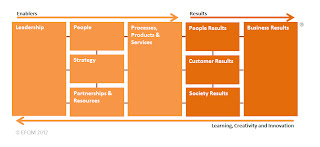Being socially responsible is not only a matter of doing
but also of communication: to show
what you are doing, why and how. To inspire others, and also to offer room for
stakeholders' ideas. The key word is transparency. Discover how transparency
can help deal with the challenges of these times.
De Kristal
 The Dutch Ministry of Economic Affairs, Agriculture and Innovation wants
to encourage companies to be transparent about their sustainability activities. Good
reporting is of crucial importance to separate the wheat from the chaff: how
are the big companies doing and what types of improvements are there? Every
year a selection of companies are evaluated on this in the Transparantiebenchmark. The winner receives the prestigious De Kristal award.
The Dutch Ministry of Economic Affairs, Agriculture and Innovation wants
to encourage companies to be transparent about their sustainability activities. Good
reporting is of crucial importance to separate the wheat from the chaff: how
are the big companies doing and what types of improvements are there? Every
year a selection of companies are evaluated on this in the Transparantiebenchmark. The winner receives the prestigious De Kristal award.
Turbulent teens
Social responsibility is here to stay, but what is really happening and, still more
important: how effective is it? These are turbulent times because the world is on
the move. Different problems are addressed in the report Vision 2050: the new agenda for businesses: unemployment and social
unrest such as e.g. happening in South Europe; climate changes and scarcity of raw
materials. We are only at the beginning of a difficult road: ‘The turbulent
teens have just started.’ Therefore we need a radical, fast reformation, namely
NOW.
Accountants to the
rescue
Revolution does
not occur automatically; we must actively work on it by creating the right
frameworks. ‘We must change the rules of the
game’, says Peter Bakker of the World Business Council for Sustainable Development (WBCSD). Meaning: companies must pay for the natural and social consequences of their
activities. It is time to draw up rules for
non-financial reporting (for natural
capital and social capital), only
then will real transparency emerge. A good example
for this is Puma: they map the Cost
of the Planet of their company’s activities.
Your true nature
 On the 22nd of November three companies received De Kristal 2012 award. Mondial Movers was chosen for the second time in a row in the category
SME, while DSM was the big winner among the large companies. Koninklijke Wessanen won the award in the category ‘biggest improver 2012’.
On the 22nd of November three companies received De Kristal 2012 award. Mondial Movers was chosen for the second time in a row in the category
SME, while DSM was the big winner among the large companies. Koninklijke Wessanen won the award in the category ‘biggest improver 2012’.
The jury had chosen the credo ‘Show who you really are, what your
true nature is’ in order to select the winner. This may be the golden tip for
those who want to go for next year’s award.






